Obasanjo: Tireless General back in the trenches
[ad_1]
THERE are not the best of times to be a Nigerian, let alone a Nigerian child. As state governors grow dizzy with rhetoric, articulating visions that lead to nowhere, millions of Nigerian children, especially in the North, are virtually left at the mercy of the elements. They are on the streets begging for money or foraging for food. They sleep on the streets and mingle with criminals using hard drugs, and from early age are exposed to the life of crime. Their parents cannot send them to school, and the government is doing little to reverse the trend. Although the out-of-school phenomenon is a global problem, the situation is particularly horrendous in Africa. For instance, in October 2020, the global charity, Save the Children, warned that the millions of out-of-school children in the central Sahel region were at a higher risk of falling victim to violence. Children in areas in Burkina Faso, Mali and Niger faced a daily risk of kidnapping, killing, maiming and recruitment by armed groups, and nearly 4,000 schools had reportedly been closed due to attacks or fear of attacks. In a charge that may well have been directed at the Nigerian government, the charity group warned the governments of Burkina Faso, Mali and Niger to prevent a generation of children of losing out on their education through better and more flexible funding, better and more resilient education systems; a special focus on girls and children affected by armed conflict; strengthening of the health systems and scaling up critical humanitarian assistance.
Last year, the Kogi State Commissioner for Education, Science and Technology, Wemi Jones, speaking at a North-Central zonal meeting on the Draft Medium-Term National Development Plan held in Lokoja, the Kogi State capital, lamented that out of the 17 states in the country with the highest number of out-of-school children, 14 were in the North. The commissioner posited that if the trend was arrested, it would curb the insecurity that bedeviling the country. But despite warnings by stakeholders, local and global agencies, the phenomenon of out-of-school-children has gradually worsened in Nigeria. In 2018, a UNICEF survey showed that the population of out-of-school children in Nigeria had risen from 10.5 million to 13.2 million. Today, the figure is 20 million, almost 10 percent of the entire population.
Enter Mathew Aremu Okikiola Olusegun Obasanjo, the man many Nigerians refer to simply as OBJ. There are many Generals in Nigeria, but only one of them has had the longest stint in power, calling the shots in khaki and then agbada. He is no stranger to war or controversy, and it can be no news that he is back in the news, for he is never really out of it. Obasanjo holds the distinction of being Nigeria’s longest serving leader with three years as military leader and eight as a civilian. Indeed, OBJ as he is fondly called is the most senior military officer alive today bar one (Yakubu Gowon, the man from whom he and the late Murtala Mohammed took power) and he brooks no dissidence from junior officers. The jury is out regarding his performance as two-term civilian president, but even his staunchest critics will admit that out of office he has been a statesman in the truest definition of the word, seeking to broker peace both at home and across Africa. He recently pulled off a peace deal in Ethiopia, and some, including his former deputy and current presidential candidate, Atiku Abubakar, have even called on the government to implant his name and face in the Nigerian currency.
Speaking as a panelist at the National Summit on Tertiary Education Reform with the theme “Reimagining Tertiary Education in Nigeria: Issues, Challenges and Solutions” this week, Obasanjo linked Nigeria’s out-of-school children phenomenon to future terrorism. His words: He said: “The greatest resources we have in this country are the people. How many are we today? We are about 216 million and that is a great resource. Tertiary education is very important. But education…has left 20 million of our children out of school and those 20 million have no access to education. They cannot be effectively part of nation building because they have not had the opportunity to develop their innate capacity to the extent that they can be useful to themselves, to their families and to their community let alone their nation, let alone Africa.
“…We can get them back to school. If we do not get them back to school, we are preparing for Boko Haram of tomorrow. It will happen as sure as daylight. What can we do? Where are these 20 million children? Where are they located? Can we have schools in the morning and afternoon to get them in at least for six years. In the period of six years where this is happening, we should prepare for the transition from primary school to secondary school. And if we are able to do that, we have started the process of lifting education, an instrument of nation building.”
The Owu General should know. A non-varsity graduate when he stepped down from office in 1979 and handed over power to civilians, Obasanjo today has a PhD in the kitty, and is qualified to teach in the university. Indeed, his experience is likely to stand him in good stead should he apply for a chair. Even before he re-emerged on the national scene following his release from prison by the General Abdulsalami Abubakar junta in 1998 and subsequent elevation to the Presidency in 1999, he had written well-rated books. He wrote books as civilian president, and has never at any time stopped reading and researching. Although in the use of the written word he is no Wole Soyinka, a friend with whom he has a rogue relationship, frequently quarreling and sparring, sometimes (according to Soyinka) as he dealt with beer bottles, there can be no doubt that he is one of Nigeria’s most intellectually attuned and established Generals.
If insecurity feeds off out-of-school children, a shockingly large number of whom engage in drug abuse, then Obasanjo should not be ignored. It was under his tenure that the Universal Basic Education Act 2004 which provides for compulsory, free and universal basic education of all children of primary and junior secondary school age in the country was enacted. UBEC is supposed to be driven by collaboration with state governments, but most of the states, in clear violation of the Child Rights Act, have failed to provide the required counterpart funding, and thus been unable to draw from the fund.
And so if the Owu chief scoffs at state governments’ rollout of fanciful programmes that leave the Almajiri syndrome unaddressed, he is on solid ground. He can point to the investments in education under him and, as he recalled this week, primary teachers enjoying the minimum wage negotiated with the Adams Oshiomhole-led Nigeria Labour Congress (NLC) actually bought cars during his first outing as civilian president following the return to civil rule in 1999. They were called Omo Obasanjo (Obasanjo’s children).
For Obasanjo, experience has been the best teacher, and time has conquered a lot of crisis. Perceived to have been a tool of the northern oligarchy, Obasanjo was for many years unpopular in Yorubaland. He was roundly rejected by his kinsfolk when he ran for president in 1999, but his performance and the redrawing of political maps and strategies saw him conquer Yorubaland using the then sitting governors whom he promised a second term of office should they give him the required home support. The rest is history, but it is fair to say that age has thawed the points where he used to disagree with his Yoruba constituency, particularly the need to restructure the Nigerian polity. In his old age, he has seen the need for restructuring, a topic about which he bellowed at the then Governor Lam Adesina during a presidential visit to Ibadan, saying he didn’t know what it meant in specific terms. Today, Obasanjo of all people advocates restructuring, and is virtually at peace with the ideological front of the South-West, Afenifere.
For an 85-year-old, Obasanjo is uncharacteristically lucid, articulate and strong. Brutally frank, meddlesome and, as many say, unforgiving, he simply has refused to be schemed out in the national scheme of things. Whenever he speaks he does so with the authority of a civil war hero, statesman, and global citizen. Per presidential spokesman Garba Shehu, governments are known to rise and fall with Obasanjo’s letters, although he has not written one in a while. Not widely beloved in his second term as civilian president though he had a fairly decent first term, Obasanjo has come to be treasured by the current generation of Nigerian youth.
Obasanjo, a diabetic patient for many years, has managed to be permanently youthful. He is sprightly, vivacious and energetic, and a good dancer even if he is not much of a singer. Now that he is back in the trenches fighting to prevent yet another threat to Nigeria’s sovereignty, he can expect the understanding, if not the adulation, of the many. And the government, particularly state governments, the chief culprits behind the out-of-school phenomenon, would do well to listen to him. What an elder sees while seated, a youth may not see standing up.
[ad_2]
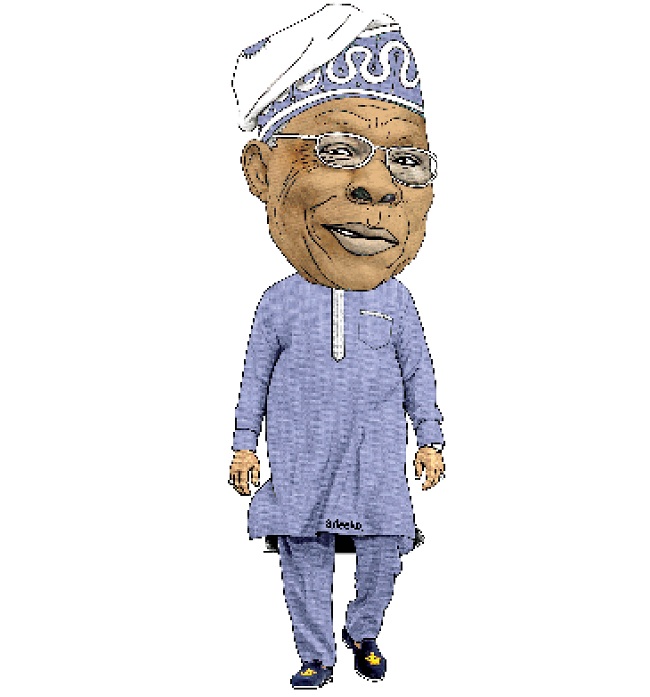

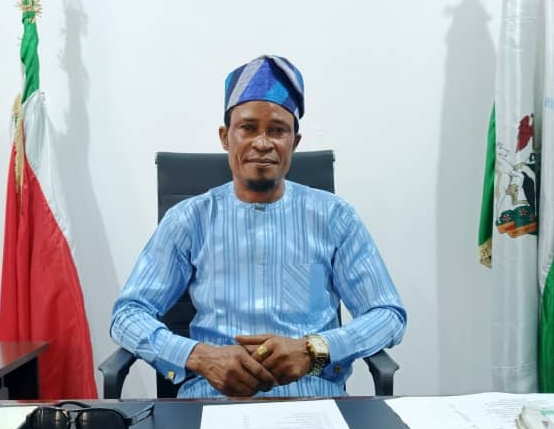
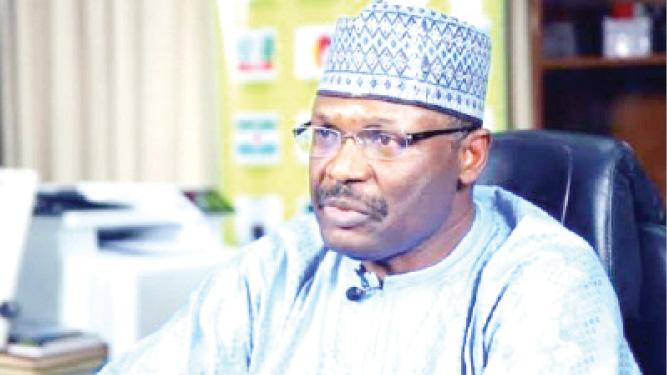

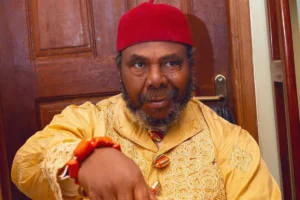
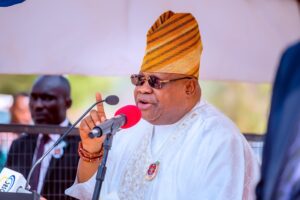

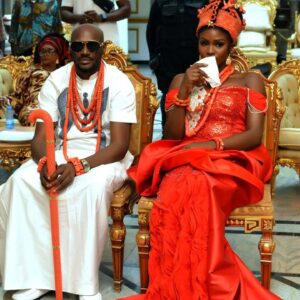





Post Comment